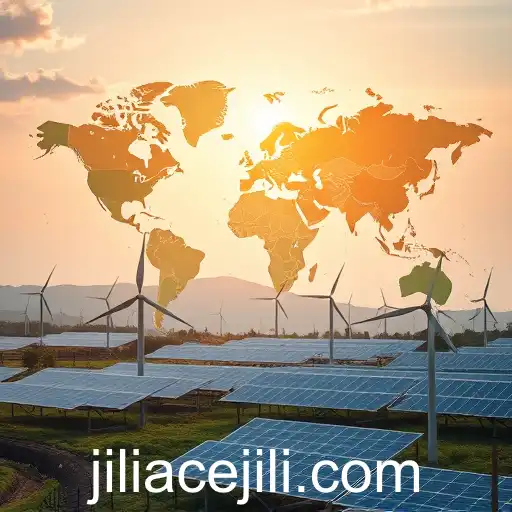
An exploration of the evolving landscape of renewable energy amidst global efforts to combat climate change.
As we transition through the mid-2020s, the momentum behind renewable energy continues to accelerate, driven by both technological innovations and urgent environmental concerns. Around the world, countries are increasingly adopting policies that align with the Paris Agreement's targets, aiming to cap global temperature increases to well below 2 degrees Celsius. This global shift underscores an intensified effort to mitigate the impacts of climate change, with renewable energy playing a pivotal role.
Recent reports indicate that the costs of solar and wind technologies have plummeted, making them more accessible and competitive than traditional fossil fuels. As a result, nations are progressively investing in large-scale renewable projects. For instance, in Europe, offshore wind farms are becoming a formidable force, contributing significantly to the energy grid. Meanwhile, solar power is rapidly expanding in regions with abundant sunlight, such as parts of Africa and Asia, where energy needs are swiftly rising.
In the United States, the Inflation Reduction Act has further propelled the shift towards green technologies by providing substantial tax incentives and funding for sustainable energy projects. This legislative push complements state-level initiatives, where local governments are fostering innovation through partnerships with academic and private sectors.
However, the transition is not without challenges. The integration of renewable energy into existing grids demands significant infrastructure upgrades and investment in energy storage solutions to address intermittency issues. Moreover, as the global community strives towards cleaner energy, it's crucial to ensure that the transition is equitable, providing opportunities and financial support to communities historically dependent on fossil fuel industries.
Industry experts believe that with continued investment and international collaboration, renewable energy has the potential to become the backbone of global energy systems. This transformation is essential not only to address the growing climate crisis but also to ensure sustainable economic development worldwide.
As these dynamics unfold, it's evident that renewable energy is no longer a niche sector but a central player in the global energy market. The coming years will undoubtedly see further advancements, compelling nations and corporations alike to innovate and adapt in this evolving landscape, paving the way for a sustainable future.




